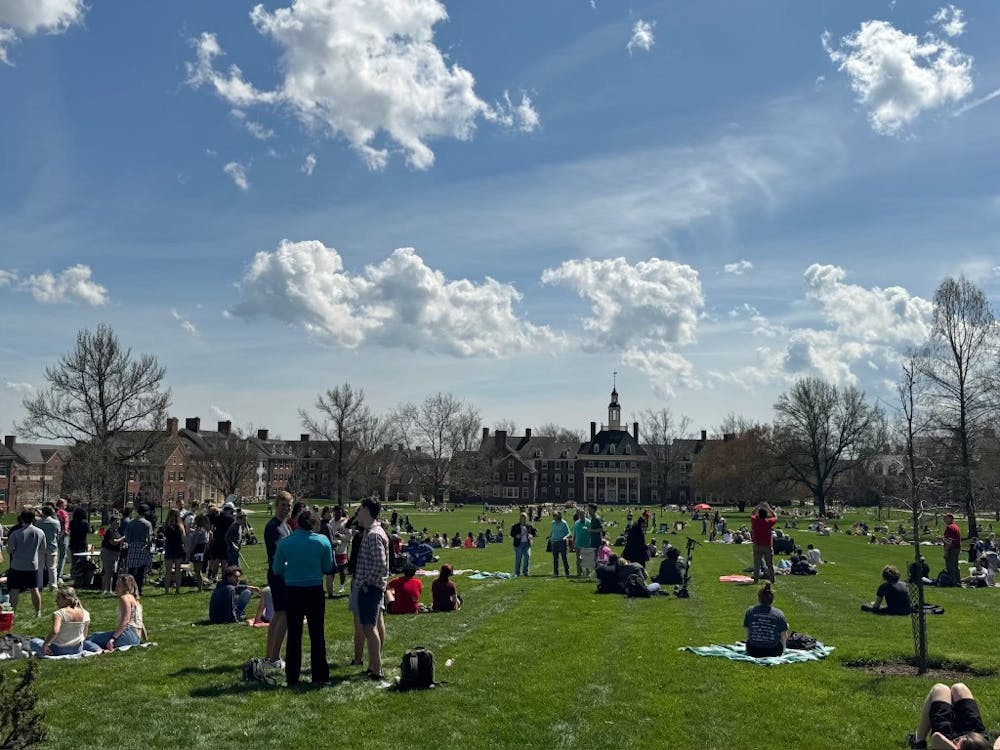The first thing I do when I wake up each morning is check my phone. Most days, I scroll through the usual memes on Twitter and open snaps from friends who unfortunately have to wake up much earlier than I do. However, waking up this Monday, I opened up one snap that sent a chill down my spine. "Holy shit, did you see what happened in Vegas?"
I didn't even respond, as I switched right over to Twitter. I didn't even have to start scrolling through my feed to see tweets about it - #prayforvegas was already all over my timeline. I went to the moments page and started scrolling through the information reporters had tweeted and as I was watching the videos live from the scene, I was shocked that this was the largest mass shooting in the United States.
Then, like every college student, I grabbed my pop tarts and ran to class. Right before our lecture, my friend turned to me and asked if I heard about Vegas, as we compared what information both of us had trying to make sense of the whole situation. Then, she said something that honestly shocked me. She declared, "I bet you that [the professor] won't talk about it in the beginning of class today."
At first I questioned why she found the need to make that comment, but then she explained her stance. The fact that we are in college to learn, but never seem to cover or discuss current events confused her. Even in an accounting lecture, where we learned about T-charts and crunching numbers, shouldn't the teacher open a conversation about events that affect us all?
There, I realized her truth. If we are experiencing a liberal education, why would it be inappropriate to talk about domestic terrorism in accounting? At that point, I wanted my professor to say something. I felt the urge to want to talk about it. Yet, when the time came, our lecture started, and we moved on.
As the day continued and my twitter feed kept filling up, the #prayforvegas turned into argument. There were calls to action, and then calls of shame because how dare they politicize this event. Then, there were people trying to call attention to Puerto Rico and other tragedies around the world. It seemed as if everyone had already made their opinion, and the conversation was just getting more heated.
My next class came around, which has a very different environment than the accounting lecture. At the beginning of each class my professor asks, "What's on your mind?" Here, for five to 10 minutes, we crack jokes, talk about issues, or just ask questions regarding past concepts learned in class. Luckily, the first hand raised brought up the events that transpired last night.
We then talked about it. Opinions weren't being shoved down people's throats, people weren't getting mad about what others had to say and it was entirely facilitated by our professor, who doesn't teach about politics, legislation or even current events.
Yet, a discussion about domestic terrorism was exactly what I wanted to have. It not only allowed us to express our thoughts, but quench that uncomfortable nagging we had because something big was on our minds. After our conversation ended and we were content about what we discussed, we could move onto the lesson and fully immersed ourselves in the material.
Having that five-minute talk about an issue we all knew about not only helped get our worries out, but created an environment of support within our class. While many would argue it's unprofessional and unnecessary to talk about current events in classes where they don't relate to the course content, maybe that is exactly what we need to do. Bringing together students and faculty through discussion doesn't just foster a truly liberal learning environment, but helps us relate to each other and exemplify the motto of Love and Honor.
stemmlmf@miamioh.edu



